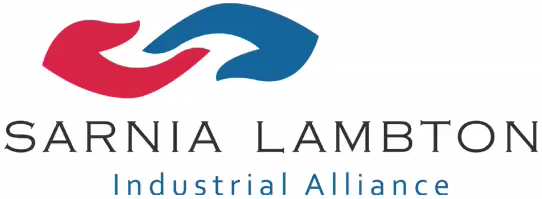By Paul Morden, Sarnia Observer
Tom Parkes, vice-president of Kel-Gor Limited, stands next to part of a tower the company is building in its Plank Road shop for Nova Chemicals. The tower will stand 270 feet high once completed and is part of a $250-million project to allow Nova’s Corunna site to take advantage of less expensive feedstock from the Marcellus shale region of the U.S. Sarnia, Ont., March 26, 2013 PAUL MORDEN/THE OBSERVER/QMI AGENCY
When the two pieces of the fractionation tower being built at Kel-Gor Limited’s Plank Road shop come together, it will be 270 feet tall, 13 feet around and weigh 1.1 million pounds.
“It’s the biggest tower we’ve ever assembled,” said Kel-Gor vice-president Tom Parkes.
It’s also a key part of Nova Chemical’s $250-million project that includes pipeline work and the revamping of its Corunna plant so it can be fed by 100% natural gas liquids.
When Nova’s eight-kilometre Genesis pipeline project is completed later this year, it will connect the company’s Corunna plant to a supply of ethane from the Marcellus shale region of Pennsylvania and West Virginia.
Nova officials have said accessing that lower-priced feedstock is “a game-changer” for its Chemical Valley sites.
Nova looked at several sources for the new tower, but the job went to Kel-Gor, a long-standing industrial contractor based in Sarnia.
“It was a very good one to get,” Parkes said.
“It’s very good for the local economy, and kept a lot of guys busy.”
Parkes said they saw a downturn in 2008, “but we’re seeing a revival and things are starting to pick up, and Nova’s a big contributing factor.”
Work on the tower began in the fall and is scheduled to be completed by July 1.
About 20 people are working on the project in double shifts, six days a week, Parkes said.
The assembly will be completed at Kel-Gor and then transported in one piece to Nova Corunna.
“It’s going to be a big, big, big move,” Parkes said.
“It will be a landmark there for years to come.”
The project is part of Nova’s 2020 capital strategy to take advantage of new feedstock supplies for its polyethylene business.
Nova Corunna’s main product is ethylene — used at its nearby Moore and St. Clair River plants to make polyethylene resins for shrink wrap, food packages, gas containers and other projects.
Earlier this month, Nova CEO Randy Woelfel said the Corunna site was on track to begin consuming Marcellus shale ethane in the third quarter of this year, with final completion of the revamp expected in early 2014.
The company has said 200 construction workers are expected at its Corunna plant when work on the revamp peaks later this year.
Imperial Oil is also expecting to begin taking advantage of Marcellus shale ethane in Sarnia.
It signed a long-term supply agreement in 2011 that is expected to take effect in the second half of this year.
“The intent is to use this as a cost-advantage feedstock for the Sarnia chemical plant,” said Imperial Oil spokesperson Jon Harding.
“No material capital investment is required by Imperial to use this ethane supply.”
Officials in Sarnia-Lambton are also watching closely for Nova’s decision, expected this year, on a proposal to spend $1-billion building a new polyethylene facility.
Nova has said it could be located in Chemical Valley and lead to an expansion of its Corunna facility.
paul.morden@sunmedia.ca
